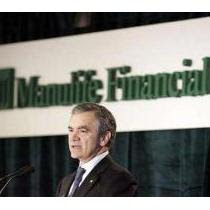
Clinton picks up emotional endorsements from black women in SC ... Obama looks to appeal to women ahead of SC primary ... Republican officials: Florida Sen. Mel Martinez to endorse McCain ... Edwards aims at Clinton-Obama fight on trail and in ads ... Huckabee focuses on widening Interstate 95 ... Kucinich quits presidential race ... Romney says his business background better qualifies him to fix the economy
___
Clinton gains black endorsements in S.C.
COLUMBIA, S.C. (AP) — Democrat Hillary Rodham Clinton gathered emotional endorsements Friday from two prominent black women who implored blacks to set aside their excitement about her rival Barack Obama's campaign to be the first black president.
In the run-up to Saturday's South Carolina Democratic primary, the first in which blacks could play a pivotal role, Clinton has spoken to mostly white audiences while her husband, Bill, the former president, has courted blacks. But that changed Friday when she made an explicit pitch for black support in a speech at a historically black college in South Carolina's state capital, surrounded by prominent black supporters.
Polls show blacks strongly supporting Obama in the state, while Clinton and John Edwards roughly split the white vote.
Meanwhile, Clinton and the Florida Democratic Party clamored to restore the state's convention delegates. The national party eliminated Florida's 185 delegates after the state broke party rules against holding their primary before Feb. 5.
Clinton leads almost 2-to-1 in the Sunshine State. She said Friday — just four days before Florida's primary — that she wants the convention delegates from there and Michigan reinstated.
Michigan also lost its Democratic delegates for moving up its contest. Clinton could claim most of its delegates because she won the state's primary after the other major candidates pulled their names from the ballot.
___
Obama focuses on women's concerns in SC
COLUMBIA, S.C. (AP) — Democrat Barack Obama looked to appeal to women's concerns, vowing to boost government spending on preschool, preventive health care and other programs.
Obama held consecutive events with small groups of women in South Carolina's two largest cities a day ahead of the state's Democratic presidential primary. He hopes to cut into rival Hillary Rodham Clinton's support among women, who were crucial to her victory in New Hampshire.
Sitting at a table with four women in Charleston, and then another four in Columbia, Obama said the Bush administration has reduced social programs vital to working families and single parents.
At his Columbia stop, the Illinois senator said he wants the federal government to work more actively with states to prevent mortgage foreclosures for struggling families.
___
Florida senator to endorse McCain
MIAMI (AP) — Florida Sen. Mel Martinez endorsed Republican John McCain on Friday, a move that is likely to give the Arizona senator a crucial boost with the state's Cuban-Americans before the state's primary on Tuesday.
"I understand that he is ready on Day One to lead this nation, and I would trust the future and the security of this nation to this man," Martinez said in his introduction of McCain at the Latin Builders Association.
The decision is a blow to Rudy Giuliani, who's competing with McCain for support of voters in the Cuban-American community. Martinez, who was born in Cuba, emigrated to the United States as a teenager and is popular in Miami's Little Havana neighborhood.
McCain told the builders group that there is no need for a national catastrophic insurance fund in hurricane-weary Florida, saying he could bring the industry and government together to protect homeowners.
"I can ... get governors, legislatures and all of the people together, and insurance companies, and we can sit down and make insurance possible across state lines, establish risk pools and make sure every homeowner has the ability to insure their home for the future from national disaster," McCain said.
___
Edwards aims at rivals' fight in ads
GREENVILLE, S.C. (AP) — Democrat John Edwards sought to underscore squabbling between his rivals that has intensified in the days leading to South Carolina's primary vote.
Making light of the clash between Hillary Rodham Clinton and Barack Obama, Edwards joked Friday that he had considered asking the two to have dinner with him at a relative's house. That changed after Monday night's debate, he said.
"We saw all of the petty, personal bickering," Edwards told several hundred people at a restaurant. "That may be the way they do politics in New York, that may be the way that they do politics in Chicago. But South Carolina's better than that."
Edwards' campaign on also launched a radio and a television ad focused on the "personal attacks" between his rivals.
___
Huckabee talks of widening I-95
MIAMI (AP) — Republican Mike Huckabee said the nation's economy would benefit from improved highways and transportation, including his proposal to widen the major East Coast artery — Interstate 95.
Huckabee said better roads would enable parents to spend less time stuck in traffic and more with their children — leading to stronger family ties.
"There is a direct economic correlation between the strength of marriage and family and the strength of America's economy," Huckabee told an audience of Christian business people on Friday. He mentioned no studies on that relationship.
___
Kucinich abandons White House bid
CLEVELAND (AP) — Democrat Dennis Kucinich Friday abandoned his presidential bid to focus on a tough race for re-election to Congress.
Speaking at a union hall, Kucinich told supporters who chanted "Dennis, Dennis," that he would work to keep his campaign promises, not as president, but as a member of the U.S. House.
"I won't be president, but I can continue to fight for these important issues as the United States congressman representing the community that is first in my heart, Cleveland, Ohio," he said.
Kucinich made an urgent appeal on his Web site this week for congressional campaign contributions as "the only candidate who can't be bought — 'cause he's not for sale."
The six-term House member got only 1 percent of the vote in the New Hampshire presidential primary and was shut out in the Iowa caucuses.
___
Romney touts his economic credentials
MIAMI (AP) — Former venture capitalist Mitt Romney asserted Friday he is better equipped than his rivals for the Republican presidential nomination — who all have more government experience — because "the only way to get America on track economically is to have a president who actually understands how the economy works."
With fear of a recession growing, Romney tried to build on a strong debate performance the prior evening by reiterating his outsider's credentials as a businessman. He blamed government paralysis in Washington for failure to expand health insurance coverage, end illegal immigration and wean the country from foreign oil.
"And part of what we're seeing right now in our economy is one of the manifestations of failing to act on the part of Washington," Romney told a breakfast meeting of the Latin Builders Association Inc.
Speaking to reporters on his bus elsewhere in Florida, rival John McCain insisted his service on the Senate Commerce Committee is better preparation for overseeing the U.S. economy than Romney's private-sector experience.
"Running an investment company is probably a good thing to do. Making national policy concerning our economy is probably more beneficial to the nation," the Arizona senator said.
___
Weather forecast for parts of South Carolina on Saturday:
Conditions in Greenville: Cloudy skies early to partly cloudy later. High 50, low 31.
Conditions in Charleston: Rain showers early, then mostly cloudy skies. High 54, low 37. Chance of precipitation, 40 percent.
___
THE DEMOCRATS
Hillary Rodham Clinton, Barack Obama and John Edwards campaign in South Carolina. Dennis Kucinich held an afternoon news conference in Ohio to announce plans for quitting the presidential race.
___
THE REPUBLICANS
Mitt Romney, Rudy Giuliani, John McCain and Mike Huckabee campaign in Florida.
___
QUOTE OF THE DAY:
"Senator Clinton has a record that can feed everybody. And we need to be fed." — Richland County Councilwoman Bernice Scott, who endorsed Democrat Hillary Rodham Clinton, at an event in South Carolina.
___
STAT OF THE DAY:
Jimmy Carter was the last Democrat to win South Carolina in a presidential election. In 1976, Carter garnered 450,807 votes compared with Gerald Ford's 346,149 votes.





















